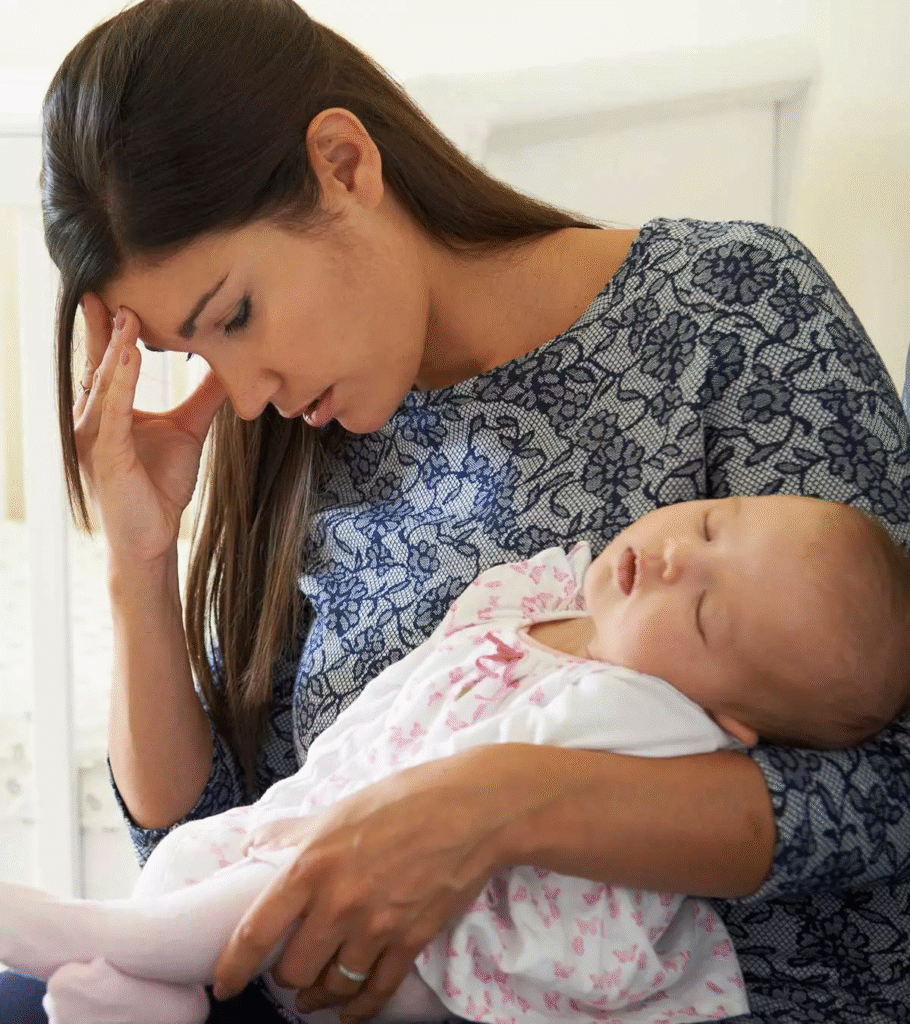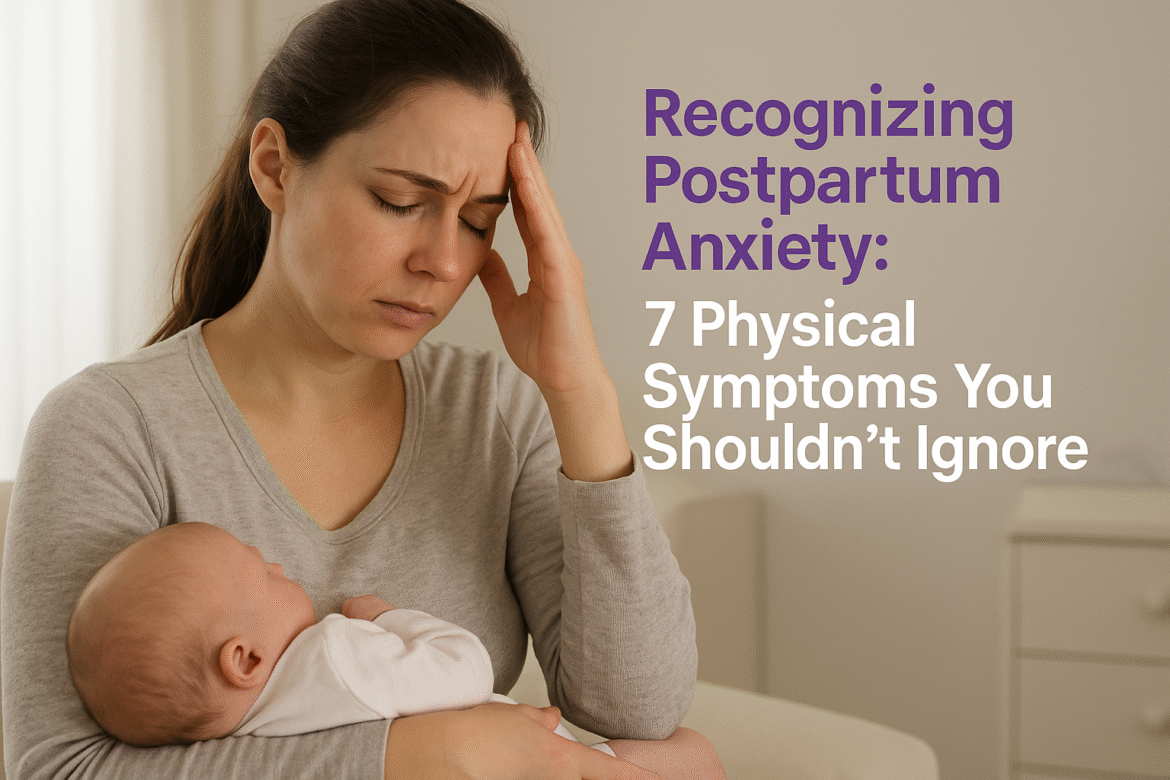Anxiety doesn’t always look like overthinking or worry. Sometimes, it shows up as body aches, sleepless nights, or a racing heartbeat that won’t quit. If you’ve noticed physical symptoms after giving birth that don’t feel “normal,” it’s worth paying attention.
Postpartum anxiety often goes unnoticed, especially when your body is already adjusting to so much. But the signs are there, and they matter. Because how you feel physically is often linked to how you’re doing emotionally. Here are seven symptoms to watch for:
1. Constant Exhaustion That Doesn’t Go Away

Feeling tired as a new mom is expected. But when you’re still dragging even after a nap or a full night’s sleep, it could be anxiety wearing you down. Your mind might be stuck in overdrive, which makes it hard to recharge even when your body is at rest.
This kind of fatigue often comes with brain fog, irritability, or even feeling disconnected from the moment. For tips on easing the overwhelm, check out these practical self-care strategies designed specifically for new moms.
2. Heart Racing or Palpitations

It might feel like your heart suddenly kicks into high gear, even when you’re sitting still. This can be scary and often confused with a health issue, but postpartum anxiety is frequently behind the scenes.
Your nervous system is more active when you’re anxious, which means your heart can act like it’s running a marathon, even if you’re just folding laundry or trying to rest. Ensure you have maximum bed rest or see your care provider for help.
3. Shortness of Breath

Struggling to take a deep breath or feeling like you can’t quite catch it? That could be your body’s stress response in action. Anxiety can make your chest feel tight and your breathing shallow.
Many moms think it’s just part of healing after birth, but if it keeps happening or feels out of proportion to your activity, don’t ignore it. Gentle breathwork or grounding exercises can help bring some relief.
4. Muscle Tension and Body Aches

If your body feels tense or achy in ways you can’t explain, postpartum anxiety might be the quiet cause behind it. Sometimes the stress of early motherhood settles in deeper than we realize, showing up through tight muscles or discomfort that won’t go away.
Your body might be signaling that you need rest, release, or emotional support. Consider weaving in moments of stretching, short walks, or mindful movement to loosen the grip. This guide on building a postpartum care plan has gentle suggestions to get started.
5. Upset Stomach or Nausea

Postpartum anxiety and digestion are surprisingly connected. Some moms lose their appetite; others feel queasy all the time. You might even experience bloating, cramps, or a fluttery belly that doesn’t go away.
If this becomes a pattern, it’s worth finding not just with a healthcare provider, but also with curiosity about how you’re emotionally feeling when it happens.
6. Dizziness or Lightheadedness

That faint or floating feeling can be unsettling, especially if it hits you out of nowhere. While it’s easy to blame dehydration or exhaustion, it could be your body’s reaction to postpartum anxiety. Tracking when it occurs, such as in the morning, after caffeine, or during anxious thoughts, can assist in identifying patterns. And remember, you don’t have to wait for symptoms to get worse before you speak up.
7. Trouble Sleeping Even When the Baby Sleeps

Even when you’re worn out, your mind keeps spinning. You’re in bed, but instead of resting, you’re replaying worries or planning things that can wait.
Sleep troubles are one of the most common signs of postpartum anxiety. Establishing a wind-down routine, even if it’s just 15 minutes, can help signal to your brain that it’s safe to rest.
What to Do If You’re Experiencing Postpartum Anxiety
Acknowledge your feelings: Remind yourself that anxiety is common and valid; you’re not alone or “overreacting.”
Talk to someone you trust: Share your experience with a partner, friend, or health professional to release the emotional load.
Practice daily grounding techniques: Try deep breathing, gentle movement, or mindfulness to calm both body and mind.
Create space for rest and nourishment: Prioritize sleep, hydration, and meals that support your energy and mood.
Seek professional support when needed: Don’t hesitate to reach out to a therapist or doctor because getting help is a sign of strength.
Closing Thought
Your body speaks in quiet ways. If these symptoms sound familiar, you’re not alone, and you’re not overreacting. Postpartum anxiety is real, but it’s also manageable with the right support. Talk to a professional, open up to someone you trust, and explore the resources available to you.
Want help building a care plan that supports both your body and mind? Our guide on creating a compassionate postpartum care plan is a great place to begin.


